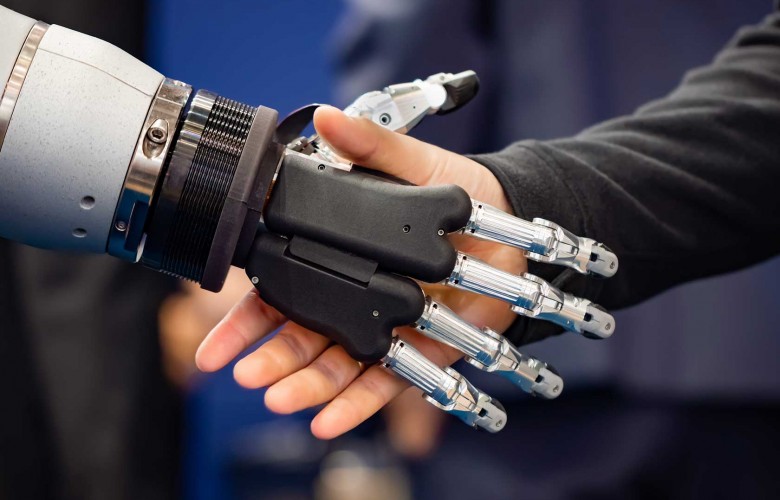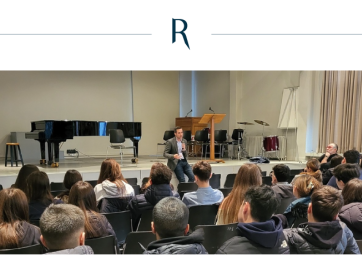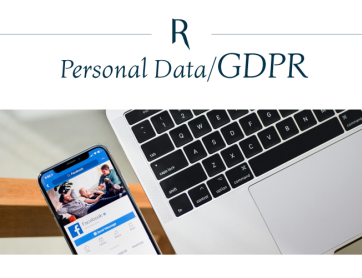Artificial intelligence in our lives and the legal issues that will arise in the future

Artificial intelligence is part of our lives more than we realize; from the algorithm which allows us to make electronic payments, the algorithms that answer us when we pose a question to websites of big companies as if they were people up to the “smart broom”, the image recognition applications, “smart” cars and many other applications in our lives. The basis of artificial intelligence is data. Their processing and management are the revolution of our times, potentially with much greater impact on mankind than even the industrial revolution.
Developments in the field of artificial intelligence, while helpful and expected to contribute much more to the improvement of living and to the increase of life expectancy, are already growing rapidly, especially in the health sector (through the automatic processing of a large set of data and the automation of both diagnosis and prevention, the more precise and rapid surgical intervention, the discovery and interpretation of the causes of medical cases), the protection of the environment and the management of global catastrophes (observation, classification, and management of global systems, energy saving, predictions on the behavior and needs of the world’s species, disaster forecasts, the development of protection instruments etc.), the development and management of alternative energy sources, the transportations (The “smart” car is already “on the road” creating huge debates on the management of ethical issues), the entrepreneurship (through the development of methods of analysis and forecasting, through automation of processes etc.), geolocation systems, the natural language processing, the natural language genetration and communication.
Enormous legal issues arise from the above aspects and from many more which concerns the specific field of science and technology, thus presenting the need to address legal issues such as:
- What is the definition of an individual? The legal definition of the concept of human, humanoid, machine and related artificial intelligence will be required in matters such as: the definition of default, the acquiring full or limited rights or not acquiring them, as well as regulating intellectual property issues. From philosophical point of view, questions such as what will distinguish man from an artificial intelligence machine, since both have the ability of logical thinking, creation, dialogue and synthesis. Does mankind create a new framework of “slavery”?
- Rights: Are artificially intelligent products with an autonomous personality entitled to rights? Will their rights be graded according to the degree of intelligence and autonomy of each machine? What are the obligations of the individual towards them? Will the rights be created on a basis of equality with the human being or will the law of right of pets be adopted, whereas the man -owner will have the same obligations against the law? An artificial intelligence product will be property of a human being or should it be entitled, and the artificial intelligence product should refuse or opt for an owner? Which other legislative model could regulate these issues?
- Personal data: People’s personal data are collected continuously from sources that people might not be aware of. Is the existing protection framework enough to regulate their protection and proper use? Additionally, could we talk in the future about personal data of artificial intelligence products and under what conditions could that be? In a conversation between a human and a machine which legislative framework for privacy completion will be implemented?
- Culpability: Based on the moral test known as the “trolley problem”, fully automated car which chooses to drift and kill the pedestrian who stands in front of it instead of suddenly braking or turning towards right or left where the obstacle exists in order to aid injury of the passengers is an advanced version. Who is responsible for the crime? The car manufacturer? The developer of the car? The owner of the car? The car itself which may have worked out all the data it could collect from its environment and took voluntarily the decision to hit the pedestrian? And what legal rules will be applied? Under which jurisdiction?
- Intellectual Property: Evolution in artificial intelligence also poses challenges in the field of intellectual property products. Could an artificial intelligence product be the only beneficiary or co-owner in a patent or industrial design? And under which circumstances? Could it be considered as a copyright holder of a painting, a book, a musical composition or even a scientific analysis?
- Data, security and protection of privacy: Artificial intelligence products collect personal data, but what kind of guarantees exist that these data are adequately protected or managed based on national (and European) legal rules or even generally accepted ethical rules? A typical example are social chatbots (under Bi), whose function is based on the collection of personal data of the people they talk to and which they use both in a subsequent conversation with the same person and in conversations with other people. Since it is practically impossible to be invisible online, how feasible is the adequate protection of privacy and under which legal framework?
- Competition and consumer protection issues: In this very wide field of life, we ask questions such as: Which framework regulates the case where a robot is not suitable for the intended use? Could it be guilty of misleading conduct or part of collusion against a competing company? Should the degree of initiative that an artificial intelligence product takes be defined when it trades on behalf of third parties? Where should the legislature’s intervention be stopped for the sake of science?
- Jurisdiction issues: The use of artificial intelligence products does not know borders. Therefore, the question that arises is what kind of law is applicable in the event of a violation of a person’s right, in the event of a tort, or in the case of a criminal offense.
- Ethical issues: A dominant issue in terms of artificial intelligence is the moral part. Questions such as “is it feasible, but is it moral?” or “in the case of a lose-lose situation (i.e. “smart” car) what is the most ethical choice?” or even “in case the artificial intelligence minimizes jobs, how will the governments react to this situation?”, concern people and legislators. Hypothetical scenarios are created without yet having answers for the most ethically correct option that an artificial intelligence product should be “forced” to have.
The debate on the above issues is expected to be long, and developments in technology are unstoppable. The only certainty is that a new era has already begun for mankind and it is up to us to use the new instruments that are gradually being put to our disposal.
Iliana Costis,
Lawyer, LLM professional in intellectual property issues, personal data and artificial intelligence


